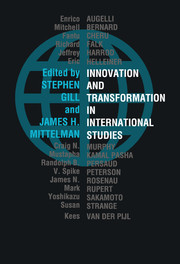Book contents
- Frontmatter
- Contents
- List of contributors
- Preface
- Acknowledgements
- Part I Rethinking and remaking the roots of global social and political theory
- Part II Political economy: the social and ecological anatomy of transformation
- Part III Transformation, innovation and emancipation in global political and civil society
- Part IV Reflections on global order in the twenty-first century
- References
- Index of names
- Index of subjects
Preface
Published online by Cambridge University Press: 05 July 2011
- Frontmatter
- Contents
- List of contributors
- Preface
- Acknowledgements
- Part I Rethinking and remaking the roots of global social and political theory
- Part II Political economy: the social and ecological anatomy of transformation
- Part III Transformation, innovation and emancipation in global political and civil society
- Part IV Reflections on global order in the twenty-first century
- References
- Index of names
- Index of subjects
Summary
Our book is an effort to conceptualise and analyse change in international relations and in International Studies. This is attempted in a collection of original essays that either review the work of major authors or that explore key theories or concepts in the light of two main themes: theoretical innovation and historical transformation. Although all the chapters in the collection are short (as a result of the editors' insistence), these essays show ways that new research problems and puzzles are appearing on a critical agenda for the study of global social relations in the emerging world order.
It needs to be stressed at the outset that this collection makes no claims to ‘value-free’ scientific inquiry along the lines of positivist and rationalchoice approaches to international relations and political economy. Indeed, whilst there is no single epistemological position found in these pages, the authors adopt an approach that is ‘critical’, that is concerned to unmask and explain the underlying structures and social forces and discourses that constitute political and social life, whilst linking these to the idea of political emancipation – that people make history but not necessarily under conditions of their own choosing. Most of the contributions involve historicist, dialectical, hermeneutic or post-modern approaches. They seek to connect past, present and possible futures to an emancipatory political project.
- Type
- Chapter
- Information
- Innovation and Transformation in International Studies , pp. xv - xxPublisher: Cambridge University PressPrint publication year: 1997



